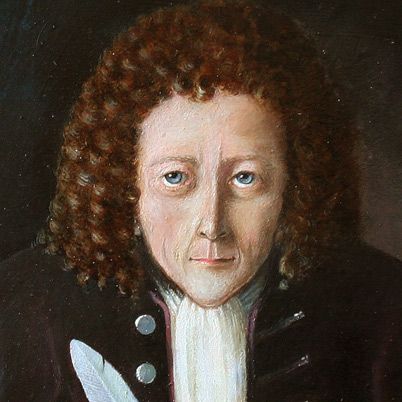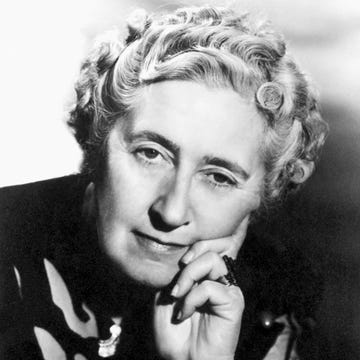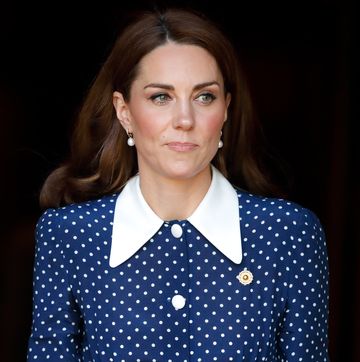(1635-1703)
Who Was Robert Hooke?
Scientist Robert Hooke was educated at Oxford and spent his career at the Royal Society and Gresham College. His research and experiments ranged from astronomy to biology to physics; he is particularly recognized for the observations he made while using a microscope and for "Hooke's Law" of elasticity. Hooke died in London in 1703.
Early Life and Education
Robert Hooke was born in the town of Freshwater, on England’s Isle of Wight, on July 18, 1635. His parents were John Hooke, who served as curate for the local church parish, and Cecily (née Gyles) Hooke.
Initially a sickly child, Hooke grew to be a quick learner who was interested in painting and adept at making mechanical toys and models. After his father’s death in 1648, the 13-year-old Hooke was sent to London to apprentice with painter Peter Lely. This connection turned out to be a short one, and he went instead to study at London’s Westminster School.
In 1653, Hooke enrolled at Oxford's Christ Church College, where he supplemented his meager funds by working as an assistant to the scientist Robert Boyle. While studying subjects ranging from astronomy to chemistry, Hooke also made influential friends, such as future architect Christopher Wren.
Teaching, Research and Other Occupations
Hooke was appointed curator of experiments for the newly formed Royal Society of London in 1662, a position he obtained with Boyle's support. Hooke became a fellow of the society in 1663.
Unlike many of the gentleman scientists he interacted with, Hooke required an income. In 1665, he accepted a position as professor of geometry at Gresham College in London. After the "Great Fire" destroyed much of London in 1666, Hooke became a city surveyor. Working with Wren, he assessed the damage and redesigned many of London’s streets and public buildings.
Major Discoveries and Achievements
A true polymath, the topics Hooke covered during his career include comets, the motion of light, the rotation of Jupiter, gravity, human memory and the properties of air. In all of his studies and demonstrations, he adhered to the scientific method of experimentation and observation. Hooke also utilized the most up-to-date instruments in his many projects.
Hooke’s most important publication was Micrographia, a 1665 volume documenting experiments he had made with a microscope. In this groundbreaking study, he coined the term "cell" while discussing the structure of cork. He also described flies, feathers and snowflakes, and correctly identified fossils as remnants of once-living things.
The 1678 publication of Hooke's Lectures of Spring shared his theory of elasticity; in what came to be known as "Hooke’s Law," he stated that the force required to extend or compress a spring is proportional to the distance of that extension or compression. In an ongoing, related project, Hooke worked for many years on the invention of a spring-regulated watch.
Personal Life and Death
Hooke never married. His niece, Grace Hooke, his longtime live-in companion and housekeeper, as well as his eventual lover, died in 1687; Hooke was inconsolable at the loss.
Hooke's career was marred by arguments with other prominent scientists. He often sparred with fellow Englishman Isaac Newton, including one 1686 dispute over Hooke’s possible influence on Newton’s famous book Principia Mathematica.
In his last year of life, Hooke suffered from symptoms that may have been caused by diabetes. He died at the age of 67 in London on March 3, 1703.
QUICK FACTS
- Name: Robert Hooke
- Birth Year: 1635
- Birth date: July 18, 1635
- Birth City: Freshwater, Isle of Wight
- Birth Country: England
- Gender: Male
- Best Known For: Robert Hooke is known as a "Renaissance Man" of 17th century England for his work in the sciences, which covered areas such as astronomy, physics and biology.
- Industries
- Education and Academia
- Journalism and Nonfiction
- Architecture
- Business and Industry
- Science and Medicine
- Technology and Engineering
- Astrological Sign: Cancer
- Schools
- Wadham College
- Death Year: 1703
- Death date: March 3, 1703
- Death City: London
- Death Country: England
Fact Check
We strive for accuracy and fairness.If you see something that doesn't look right,contact us!
CITATION INFORMATION
- Article Title: Robert Hooke Biography
- Author: Biography.com Editors
- Website Name: The Biography.com website
- Url: https://www.biography.com/scientists/robert-hooke
- Access Date:
- Publisher: A&E; Television Networks
- Last Updated: June 22, 2020
- Original Published Date: April 2, 2014












